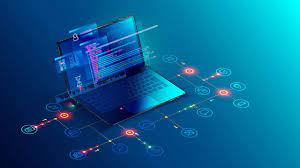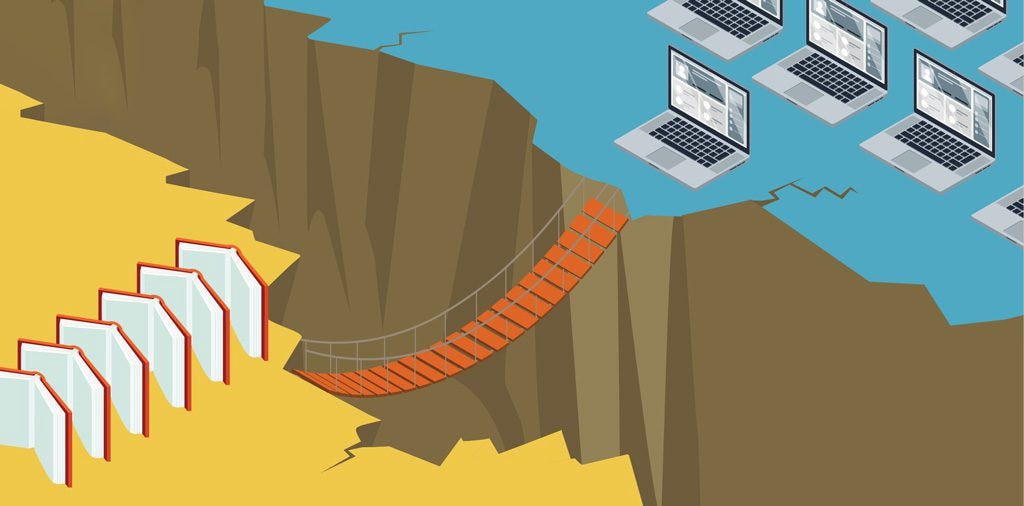Future Predictions for?Technology Development and Adoption
The rapid pace of predictions for technology development has become a defining characteristic of our modern world.

The rapid pace of predictions for technology development has become a defining characteristic of our modern world. From the advent of the internet to the proliferation of smartphones, technology has transformed every aspect of our lives.
As we move forward into an increasingly digital age, it's essential to take a closer look at the future trends and predictions for technology development and adoption.
In this blog post, we will explore the key areas where technology is poised to make significant strides and how these advancements will impact society, businesses, and individuals.
Artificial Intelligence (AI) and Machine Learning
Artificial Intelligence and Machine Learning have been at the forefront of technological advancements in recent years, and this trend is set to continue. AI systems are becoming more sophisticated, capable of understanding and processing vast amounts of data.
We can expect AI to permeate various industries, from healthcare to finance, and even creative fields like art and music composition.
One exciting development is the emergence of AI in healthcare. AI algorithms can analyze medical data to assist in diagnosing diseases, predict patient outcomes, and even assist in drug discovery. In the coming years, we can anticipate more personalized healthcare solutions driven by AI, improving the quality of medical care worldwide.
In the business world, AI-powered automation will continue to revolutionize processes, reducing costs and increasing efficiency. Chatbots, virtual assistants, and automated data analysis will become even more prevalent, streamlining operations and improving customer service.
5G Technology and Connectivity with Predictions for Technology Development
The rollout of 5G technology promises to reshape how we connect and communicate. With significantly faster download and upload speeds, lower latency, and increased network capacity, 5G will open up new possibilities for technological innovation.
It will be the backbone for the Internet of Things (IoT), enabling seamless communication between devices and paving the way for smart cities and autonomous vehicles.
5G will also transform the way we consume media and entertainment. Streaming high-definition and even virtual reality content will become smoother and more accessible, changing the landscape of the entertainment industry.
Moreover, 5G will be a game-changer for businesses, facilitating remote work, enabling real-time data analytics, and enhancing the capabilities of augmented and virtual reality applications. This will create new opportunities for remote collaboration and immersive training experiences.
Blockchain and Cryptocurrency
Blockchain technology, known for its role in enabling cryptocurrencies like Bitcoin, is set to have a profound impact beyond the financial sector. Its decentralized and transparent nature makes it suitable for various applications, such as supply chain management, voting systems, and digital identity verification.
Cryptocurrencies are likely to become more integrated into our financial systems, with central banks exploring the development of digital currencies. This could transform the way we conduct transactions, making them faster, more secure, and more accessible to everyone.
Blockchain's potential to revolutionize supply chains is another exciting prospect. It can enhance transparency and traceability, reducing fraud and ensuring the authenticity of products. Consumers will be able to track the journey of products from manufacturing to delivery with confidence.
Augmented Reality (AR) and Virtual Reality (VR)
AR and VR technologies are progressing rapidly and are expected to become increasingly integrated into our daily lives. While VR immerses users in entirely digital environments, AR overlays digital information onto the real world.
In education, AR and VR can create immersive learning experiences, making complex subjects more engaging and understandable. Similarly, in the workplace, these technologies can enhance training programs, allowing employees to practice and learn in a safe and controlled virtual environment.
For entertainment, VR gaming is already a growing industry, and as technology advances, we can expect even more realistic and immersive experiences. AR, on the other hand, will continue to evolve in applications like navigation, gaming, and retail, where it can enhance the shopping experience by providing virtual try-ons and product information.
Renewable Energy and Sustainability
The urgency of addressing climate change has put a spotlight on technology's role in achieving sustainability. Renewable energy sources, such as solar and wind power, are poised to become the primary sources of energy in the future. Advancements in energy storage technologies will play a crucial role in ensuring a stable energy supply from these intermittent sources.
Electric vehicles (EVs) are set to replace traditional combustion engine cars, driven by improvements in battery technology and the expansion of charging infrastructure. The transportation sector's shift toward EVs will contribute significantly to reducing greenhouse gas emissions.
Smart grids and energy-efficient technologies will also become more prevalent, enabling better management of energy resources and reducing waste. From smart homes to smart cities, technology will play a pivotal role in creating a sustainable future.
Cybersecurity and Privacy
In response to this, we can expect advancements in cybersecurity measures. AI-powered security systems will become more adept at identifying and mitigating threats in real-time. The use of blockchain for securing data and transactions will also gain traction, providing a more robust defense against hacking and fraud.
Moreover, privacy regulations and user awareness will continue to drive the demand for transparent data handling practices.
Biotechnology and Healthcare for Predictions for Technology Development
The convergence of technology and biology holds immense promise for the future of healthcare. Personalized medicine, gene editing, and telemedicine are some of the areas where biotechnology and technology intersect.
Personalized medicine, powered by genomics and AI, will enable healthcare providers to tailor treatments to an individual's genetic makeup, increasing treatment efficacy and reducing side effects. Gene editing technologies like CRISPR-Cas9 hold the potential to cure genetic diseases by precisely modifying DNA.
Telemedicine, accelerated by the COVID-19 pandemic, will continue to grow as a convenient and efficient way to deliver healthcare services. Remote patient monitoring devices and AI-driven diagnostics will make healthcare more accessible, particularly in underserved areas.
The future of technology development and adoption promises to be both exciting and transformative. These advancements will impact how we live, work, communicate, and even address global challenges like climate change and healthcare access.
As we embrace these technological advancements, it is crucial to remain mindful of the ethical and societal implications that may arise.
In this fast-paced digital age, adaptability and a willingness to embrace change will be valuable traits. The future belongs to those who can harness the power of technology to solve problems, improve lives, and create a more sustainable and connected world. By staying informed and open to innovation, we can all be active participants in shaping this exciting future.
What's Your Reaction?















